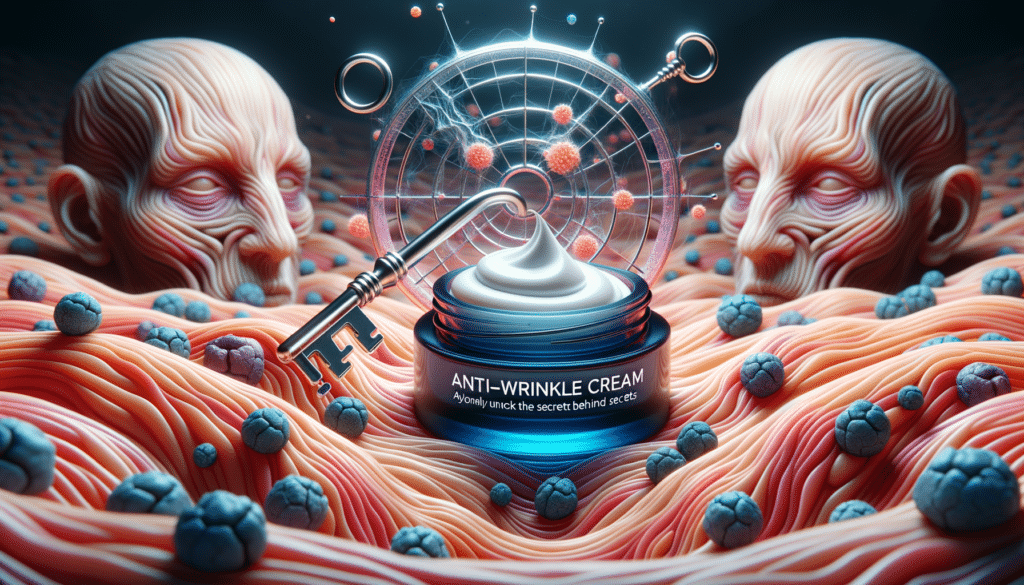The Science Behind Anti-Wrinkle Creams
In the quest for eternal youth, anti-wrinkle creams have emerged as a popular choice for many. These creams are formulated with a variety of ingredients designed to reduce the appearance of wrinkles and fine lines. The science behind these products often involves a combination of peptides, antioxidants, and retinoids, each playing a critical role in skin rejuvenation. Peptides, for instance, are chains of amino acids that help in collagen production, essential for maintaining skin elasticity. Antioxidants like vitamin C and E protect the skin from oxidative stress caused by free radicals, which are known to accelerate aging. Retinoids, derivatives of vitamin A, promote cell turnover, helping to reveal fresher, younger-looking skin beneath.
Research has shown that consistent use of these ingredients can lead to visible improvements in skin texture and tone. For example, a study published in the Journal of Cosmetic Dermatology found that retinoid-containing creams significantly reduced fine lines and improved skin firmness over a 12-week period. However, it’s important to note that results can vary based on individual skin types and the specific formulation of the cream.
• Peptides boost collagen production, enhancing skin elasticity.
• Antioxidants protect against free radicals, reducing oxidative stress.
• Retinoids aid in cell turnover, revealing fresher skin.
Choosing the Right Anti-Wrinkle Cream for Your Skin Type
With a plethora of options available, selecting the right anti-wrinkle cream can be overwhelming. The key is to understand your skin type and its specific needs. For those with oily skin, a lightweight, non-comedogenic formula is ideal to prevent clogged pores. Conversely, individuals with dry skin may benefit from a cream with hydrating ingredients like hyaluronic acid, which helps retain moisture.
It’s also crucial to consider any skin sensitivities. People with sensitive skin should opt for creams with gentle formulations, avoiding products with high concentrations of retinoids that may cause irritation. Additionally, age can play a role in determining the appropriate product. Younger users might focus on preventative measures with antioxidant-rich creams, while mature skin may require more intensive treatments with higher retinoid concentrations.
• Oily skin: Choose non-comedogenic, lightweight formulas.
• Dry skin: Look for hydrating ingredients like hyaluronic acid.
• Sensitive skin: Opt for gentle formulations to avoid irritation.
Understanding the Role of Lifestyle in Skin Aging
While anti-wrinkle creams can be effective, they are most beneficial when combined with a healthy lifestyle. Factors such as diet, hydration, and sun exposure significantly impact skin health. A diet rich in vitamins and antioxidants supports skin vitality, while adequate water intake keeps the skin hydrated and plump.
Sun exposure is one of the leading causes of premature aging. Ultraviolet (UV) rays damage the skin’s collagen and elastin fibers, leading to wrinkles and sagging. Therefore, using a broad-spectrum sunscreen daily is essential to protect against UV damage. Additionally, avoiding smoking and minimizing alcohol consumption can further support skin health, as both habits contribute to the breakdown of collagen and elastin.
• Diet: Consume foods rich in vitamins and antioxidants.
• Hydration: Ensure adequate water intake for plump skin.
• Sun protection: Use broad-spectrum sunscreen daily.
The Importance of Consistency and Patience
When it comes to anti-wrinkle creams, consistency and patience are key. While some may hope for immediate results, the reality is that skin rejuvenation takes time. Regular application, as directed by the product, is crucial to achieving the desired outcomes. Most creams require at least several weeks of consistent use to begin showing noticeable improvements.
It’s also important to manage expectations. While anti-wrinkle creams can significantly reduce the appearance of fine lines, they may not completely eliminate deeper wrinkles. For those seeking more dramatic results, combining topical treatments with professional procedures such as chemical peels or laser therapy may be beneficial.
• Regular application is crucial for visible results.
• Most products require several weeks to show improvements.
• Manage expectations: creams may not eliminate deep wrinkles.
Innovations in Anti-Wrinkle Creams
The skincare industry is continually evolving, with new innovations in anti-wrinkle creams emerging regularly. Recent advancements include the incorporation of novel ingredients like stem cells and growth factors, which aim to enhance skin repair and regeneration. These cutting-edge components work by stimulating the skin’s natural healing processes, potentially leading to more youthful and resilient skin.
Moreover, technology is playing a significant role in product development. Some brands are utilizing artificial intelligence to analyze skin conditions and tailor formulations to individual needs. This personalized approach ensures that consumers receive the most effective treatment for their specific skin concerns.
• Stem cells and growth factors enhance skin repair.
• AI technology personalizes formulations for individual needs.
• Continuous innovation offers new solutions for aging skin.





